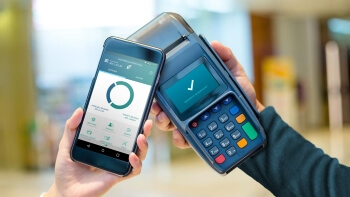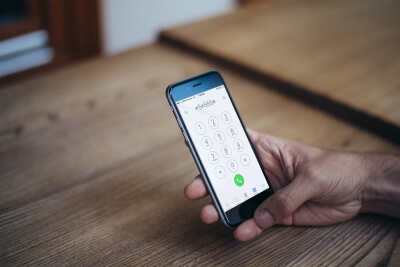
WHAT IS MOBILE PAYMENT?
Mobile payment refers to transactions that take place within financial regulations by way of mobile devices. Over the years, people have moved from the conventional modes of payment and are now embracing the use of their phones in monetary transactions.
With your mobile device, you can now pay for a variety of products. This concept is not new in the market as people had embraced the use of non-coin based systems in the past. However, it has gained more traction in the recent years, thus leading to an increase in the number of people who use it.

The adoption of this system is global with the first patent having gotten filed back in the year 2000. The global reach of this system stands at hundreds of billions per annum; a figure projected to grow in the times to come. Continents such as Asia and Africa quickly caught on and are now using such payments for almost everything ranging from shopping to making payments on utilities. Mobile-based payments have been a way to reach the population often categorized as unbanked or under-banked.
With these payments, the nature of the transactions is often small. Charitable organizations have taken a keen interest in these systems and are now funding people using such means. Examples include Mercy Corps and the USAID. With the reduction of costs owing to these kinds of payments, businesses stand to benefit the most thanks to the increase in volume.
Models
Five main modes exist in these payments. They are mobile wallets, direct transfers between the payee and the payer, card-based systems, contactless payments and carrier billing. These models can then get combined to create systems such as direct carrier/ bank co-operation and both bank account and card.
Many banking institutions, telecommunications companies, and internet companies are utilizing these systems. Examples include Orange and Google.
Mobile wallet
If you have used services such as PayPal, you have come across this feature. The process is quite straightforward, and it involves registration with a phone number. Once you activate the PIN sent to you via phone, you can set up your credit card information and start making payments. In the following transactions, all you will need is your PIN for verification.

Credit Card
With this system, you will need to enter your card details on your mobile device so that you can make a purchase. Some systems are secure such that the vendor can identify you after the first transaction such that you need not enter your details each time which allows you to make purchases in a single click.
Carrier billing
With this model, you choose the mobile billing option when asked to make payment on a site such as gambling. Often, the process will involve setting a PIN and a password before making a purchase. This method helps you bypass other forms of payments such as banks and credit card companies.
This method is a favorite in Asia based on its ease of use, speed, convenience, and security.More about BOSASA security.
Text/ USSD based payments

In this model, you send a payment request by way of text or send a USSD to a given code. Your online wallet or phone bill will then be subject to a charge, after which you can complete your purchase.
Payment technologies
These systems use a variety of technologies such as token transmission over the air, also known as OTA or by manual entry using a keypad. Other forms include RFI, NFC (near field communication), Bluetooth and Wi-Fi. Companies which provide these services include but are not limited to PayPal, Apple, and Square.
What is the downside to these payments?
The use of mobile devices in making transactions is growing at a steady rate. However, the reach rate is still quite low, and many people are still hesitant to use such modes of payment. It is not clear whether the hesitation stems from unconvinced consumers or from the unpreparedness of these systems to get used on a broad scale.
There is also the issue of security as many people are unsure of whether their details are safe when making such transactions. When transactions take place over the air, hackers can get access to information and can misuse the data for their gain. Merchants must understand how to handle such data, something which Boston Advanced Software Agency (BOSASA) seeks to help in by providing users with software to guard their data.
Some companies also lack the required limits to ensure that the process is smooth which leads to slow processing speeds which hamper efficiency.
The bright side of these payments
With these methods, users can boost their sales, enjoy a lot of conveniences and forge relationships with their clients. Mobile payment plans are also much cheaper as compared to other means on the market. Boston Advanced Software Agency (BOSASA) can help merchants come up with data protection solutions to better help them in making the process secure for their users.
With the growth of these payments, transactions can now take place from any place, doing away with the need to stop by the bank each time you need to make a purchase.

